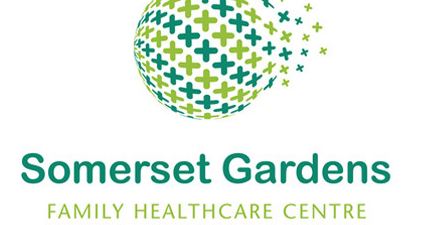What is Preconception health?
Preconception health refers to a woman’s health before she becomes pregnant. It involves understanding how various health conditions and risk factors might impact both the woman and her future baby. For instance, certain foods, habits, and medications can be harmful to a baby even before conception. Additionally, health issues like diabetes can influence pregnancy outcomes.
Preconception Care
Preconception care can enhance your chances of conceiving, having a healthy pregnancy, and delivering a healthy baby. If you are sexually active, discuss your preconception health with your doctor now. Ideally, preconception care should start at least three months before you plan to get pregnant, although some women may need more time to prepare their bodies. It’s also important to consider your partner’s health. Here are some topics to discuss with your doctor:
- Family Planning and Birth Control
- Taking Folic Acid
- Vaccines and Screenings: Such as a Pap test and screenings for sexually transmitted infections (STIs), including HIV.
- Managing Health Problems: Conditions like diabetes, high blood pressure, thyroid disease, obesity, depression, eating disorders, and asthma. Understand how pregnancy may affect or be affected by these conditions.
- Medications: Including over-the-counter, herbal, and prescription drugs and supplements.
- Improving Overall Health: Achieving a healthy weight, making nutritious food choices, staying physically active, caring for your teeth and gums, reducing stress, quitting smoking, and avoiding alcohol.
- Preventing Illness
- Workplace or Home Hazards: Identifying any risks that could harm you or your baby.
- Family Health History: Discussing any health problems that run in your or your partner’s family.
- Previous Pregnancy Issues: Including preterm birth.
- Family Concerns: Such as domestic violence or lack of support.
Bring a list of talking points to your appointment to ensure you cover everything. If you run out of time, schedule a follow-up visit.
Your Partner’s Role in Preparing for Pregnancy
Your partner can play a significant role in supporting and encouraging you during this time. Here are some ways they can help:
- Joint Decision-Making: Making the decision about pregnancy together can lead to early prenatal care and avoidance of risky behaviors like smoking and drinking alcohol.
- STI Screening and Treatment: Ensuring infections are not passed to female partners.
- Improving Reproductive Health: Limiting alcohol, quitting smoking or illegal drug use, making healthy food choices, and reducing stress. Men who drink heavily, smoke, or use drugs may have sperm issues that can affect conception. If your partner won’t quit smoking, ask them not to smoke around you to avoid secondhand smoke.
- Health Discussions: Your partner should talk to their doctor about their health, family health history, and any medications they use.
- Avoiding Toxins: People who work with chemicals or toxins should take precautions to avoid exposing women to them, such as changing out of dirty clothes before coming near women and handling soiled clothes separately.
Genetic Counseling
The genes your baby inherits can impact their health in several ways:
- Single Gene Disorders: Caused by a problem in a single gene, such as cystic fibrosis and sickle cell anemia. These disorders run in families.
- Chromosome Disorders: Occur when all or part of a chromosome is missing, extra, or structurally abnormal. Most chromosome disorders involving whole chromosomes do not run in families.
Discuss your and your partner’s family health histories with your doctor before becoming pregnant. This information can help identify any genetic risks you might have.
Things You Should Do
-
Take Folic Acid: Start taking folic acid tablets before pregnancy and continue until 12 weeks. This helps prevent spinal cord problems in the baby. Most women need 400 micrograms (0.4 mg) daily, available over the counter. If you have a higher risk of spinal cord issues (e.g., previous affected pregnancy, family history, coeliac disease, epilepsy medication, sickle cell, or thalassaemia), you may need a prescription for 5 mg daily.
-
Check Rubella Immunity: Ensure you are immune to rubella. If unsure, get a blood test from your practice nurse and get immunized if needed.
-
Eat a Healthy Diet: Include foods rich in iron, calcium, and folic acid.
-
Practice Good Hygiene: Wash hands after handling raw meat or cats and kittens to avoid harmful germs. Wear gloves while gardening.
Things You Should Avoid
-
Excess Vitamin A: Avoid liver, liver pâté, cod liver oil, and vitamin A tablets.
-
Listeriosis: Avoid undercooked meats and eggs, soft cheeses (like brie or camembert), pâtés, shellfish, raw fish, and unpasteurized milk (including goat’s milk).
-
High-Mercury Fish: Avoid shark, marlin, and swordfish. Limit tuna to no more than six sandwiches per week.
-
Infection Risks: Avoid sheep, lambs, cat feces, and cat litters.
-
Peanuts: Avoid if you have a personal or family history of eczema, hay fever, or asthma.
Things You Should Stop or Cut Down
-
Caffeine: Limit to 300 mg per day (about three cups of brewed coffee, four cups of instant coffee, or six cups of tea).
-
Alcohol: Limit to 1-2 drinks, once or twice a week.
-
Smoking: Strongly advised to stop completely.
-
Street Drugs: Strongly advised to stop completely.
